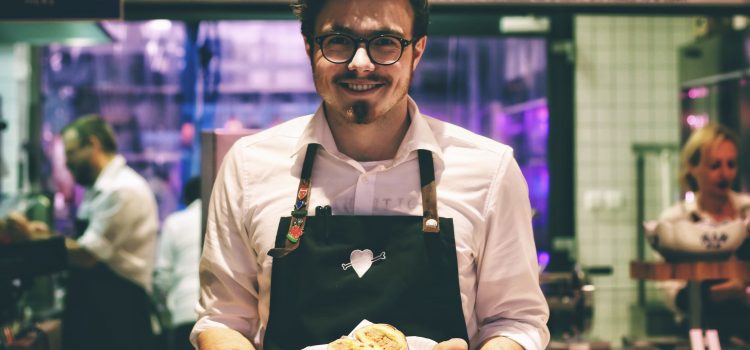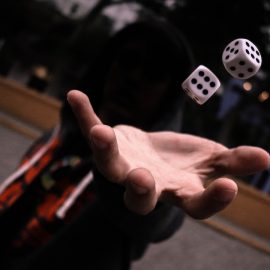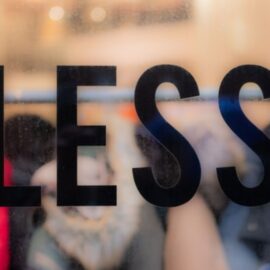

This article is an excerpt from the Shortform book guide to "Unreasonable Hospitality" by Will Guidara. Shortform has the world's best summaries and analyses of books you should be reading.
Like this article? Sign up for a free trial here.
How do fine-dining restaurants put their customers first? What makes the service at Eleven Madison Park exceptional?
Eleven Madison Park (EMP) is known for going out of its way for its customers, even by creating dishes off the menu. Will Guidara explains why giving gifts to customers is an exceptional way of guaranteeing the customers’ return.
Let’s look at how EMP shows that good service in restaurants goes a long way.
Systematize Gifts
Guidara knows how to provide good service in restaurants, and he shares his experiences in his book Unreasonable Hospitality. Once, he overheard a table of tourists who’d chosen EMP for their last meal in New York. The group mentioned that they’d eaten everything they’d wanted to eat—except for a classic New York hot dog. So Guidara ran out to purchase some, had Daniel Humm plate them, and served these hot dogs to the guests as one of their courses, explaining to them that he’d overheard their conversation and wanted to provide them with the best possible experience. The delight of the guests convinced Gudiara that this was something he should be doing regularly—and so Guidara systematized such gifts in two ways.
(Shortform note: The hot dog story appeared in several news outlets as a prime example of how unreasonable hospitality can transform the customer experience, but not everybody was impressed. One blogger contended that this story was only impressive because EMP had an impressive backdrop with which to serve the hot dog, writing that “It’s patronizing for Guidara to behave as though a $2 hot dog can make everyone a hospitality hero.”)
First, he created a position dedicated to providing unexpected gifts. Guidara understood that, while a meal at a restaurant is by definition consumed, the guests could relive their restaurant experience as long as they had a great story to tell. As a result, he started hiring “Dreamweavers”—people whose job it was to research the guests beforehand or listen during their meals and provide personalized touches to awe the guests and give them a great story. For example, the Dreamweavers turned the private dining room into a makeshift beach for a couple who unexpectedly couldn’t make their planned beach vacation.
(Shortform note: EMP wasn’t the only restaurant of its day to collect personal data on its customers. Boulud’s restaurant installed cameras in the dining room so that staff could serve the next course at the perfect time. And while Guidara touts only the benefits of paying close attention to your customers, some people may feel uncomfortable if you give them gifts based on information they didn’t share with you—like the fact that they were going on a beach vacation. This concern may be relevant even if you don’t have full-time staff dedicated to providing personalized service. For example, a customer who uses a QR code-based menu may unwittingly provide that restaurant with personal information they didn’t mean to share.)
Second, Guidara created standard gifts for repeatable moments. The personal nature of the Dreamweavers’ gifts sometimes meant that they were expensive, but Guidara found a more budget-minded way to systematize gifts. He looked for repeatable moments—the memorable things that happened regularly at the restaurant—and created standard gifts for those moments. For example, many couples got engaged at EMP. So Guidara partnered with Tiffany to create custom champagne flutes; he’d pour them a champagne toast in the flutes at EMP and gift them the flutes in Tiffany boxes.
(Shortform note: Guidara’s concept of budget-minded gifts is inaccessible to many people. In 2023, a pair of regular champagne flutes from Tiffany retailed for $125—which is still a bargain compared to the nearly thousand-dollar price tag of dining at EMP in 2012. If you’re financially unable to provide extra gifts for the repeatable moments in your business, consider upgrading the gifts you already provide. For example, many companies provide branded swag at events to increase brand awareness or to advertise to new customers. In that case, a well-thought-out (branded) party favor—like a high-end water bottle—will likely have a bigger impact than cheaper swag (like a plastic pen).)

———End of Preview———
Like what you just read? Read the rest of the world's best book summary and analysis of Will Guidara's "Unreasonable Hospitality" at Shortform.
Here's what you'll find in our full Unreasonable Hospitality summary:
- How Will Guidara turned Eleven Madison Park into the World's Best Restaurant
- Why service-based businesses should go above and beyond for customers
- Guidara's lessons he learned from each stage of his business journey






